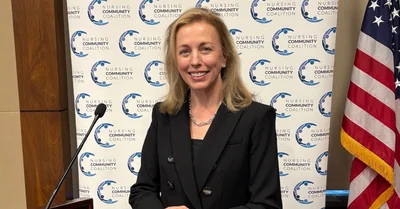Energy and Commerce Ranking Member Frank Pallone, Jr. (D-NJ) submitted the following remarks for the record today at a Subcommittee on Oversight and Investigations hearing on, “Examining Concerns of Patient Brokering and Addiction Treatment Fraud:"
Thank you, Mr. Chairman.
The opioid crisis is ravaging our country, devastating families and communities. There is no question that this crisis is unprecedented in size and scope.
There is also no doubt that high-quality, evidence-based treatment plays an essential role in helping people recover from addiction. We cannot effectively address the opioid crisis without ensuring access to treatment.
To that end recovery residences, or sober living homes, can work hand-in-hand with addiction treatment by providing people with substance use disorders a safe and supportive place to live while in recovery. These homes can be an asset in the battle against addiction if they are properly run.
Which brings us to today’s hearing - I am concerned about reports we have heard that some bad actors are exploiting coverage for addiction treatment and the sober living home model to make money off vulnerable patients. We do not know how widespread this problem is, nor do we know how many bad actors are engaged in this disgraceful fraud. I hope we will learn more from our witnesses about the scale and scope of this problem, and possible solutions to some of the problems that may exist.
For example, we have heard reports that patient brokers direct desperate individuals to dishonest treatment providers, who do not offer evidence-based addiction treatment. Some of these reports suggest these facilities treat patients as commodities, rather than people in need of treatment, and bill insurers for services that they do not provide and for unnecessary testing.
According to some reports, patient brokers also urge individuals with substance use disorder to live at poor-quality sober homes while undergoing treatment, by promising resort-style accommodations. When patients arrive, they find that the living situation is anything but relaxing. In some cases, drugs and alcohol are apparently readily available at these places. Sadly, the goal is to keep patients addicted so that they will stay in treatment and help sham providers make even more money.
These reports are appalling and, if true, are causing substantial damage to individuals and families. They are exacerbating the opioid crisis by preventing patients from accessing legitimate, evidence-based treatment.
That’s why it is important for us to investigate these allegations to get a better sense of the scope of this problem. I also hope we can discuss solutions that can prevent these types of situations from occurring in the first place.
For example, we need to ensure patients and families are more aware of what evidence-based treatment looks like, so that they can avoid falling prey to bad actors. We should also discuss the types of resources state and local authorities need in order to find bad actors and put them out of business.
On this last point, it is important to note that the schemes we are talking about today are the exception and not the rule. Addiction treatment providers are a key part of our efforts to confront this crisis across the country. I look forward to hearing from our witnesses today about what we can do to defeat bad actors, while ensuring that individuals with substance use disorders are able to obtain the high-quality addiction treatment that they need.
Thank you, and I yield back.




